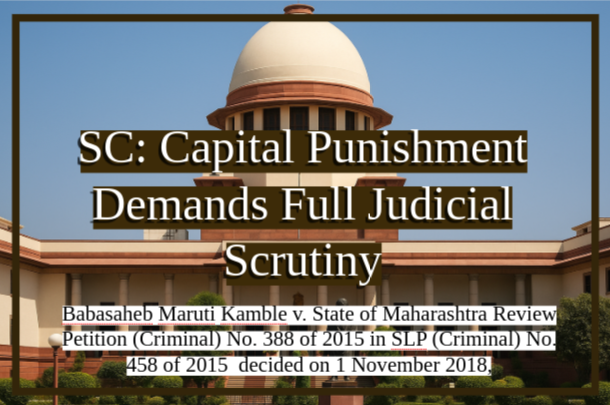SCOI Clears Doctors of Negligence in : A Lesson on Pleadings and Medical Liability
- M.R Mishra

- Sep 14, 2025
- 2 min read
The Supreme Court has finally brought closure to a tragic case where a husband sought accountability for the death of his wife, Charanpreet Kaur, and their newborn during childbirth at a Nursing Home, Chandigarh. At t
he heart of the matter lay the allegation that the hospital and its obstetrician, Dr. Kanwarjit Kochhar, had been medically negligent.

The State Consumer Commission had found fault in their post-delivery treatment and awarded over ₹20 lakh as compensation, later upheld in part by the National Consumer Disputes Redressal Commission (NCDRC). But the NCDRC took the unusual step of absolving the nursing home while shifting the blame solely onto the doctor, not for her delivery management, but for alleged lapses in antenatal care a case theory never pleaded by the complainant himself.
What Court Said?
The Supreme Court was unsparing in pointing out that tribunals cannot build new cases beyond pleadings. The complainant’s case rested entirely on alleged negligence during post-delivery care, yet the NCDRC reconstructed it as a case of deficient antenatal management.
This, the Court held, was a jurisdictional transgression. Importantly, multiple Medical Boards constituted at the behest of the complainant himself had categorically ruled out any gross medical negligence in the handling of both mother and child.
Reiterating the principle from Jacob Mathew v. State of Punjab and Martin D’Souza v. Mohd. Ishfaq, the Court emphasized that failure of treatment alone does not amount to negligence, nor can tribunals substitute their judgment for that of medical specialists.
Setting aside both the NCDRC and State Commission’s orders, the Supreme Court dismissed the complaint altogether and directed refund of the compensation received.
The ruling is significant for two reasons first, it underscores the sanctity of pleadings in consumer and tort litigation courts cannot step into the shoes of parties to imagine fresh grounds. Second, it reinforces judicial restraint in medical negligence cases, recognizing that complications and mortality are sometimes inevitable despite competent care.
This judgment thus offers a sobering balance: while the right to accountability in healthcare remains robust, tribunals must not venture beyond what is pleaded, nor equate every tragic outcome with negligence.








Comments